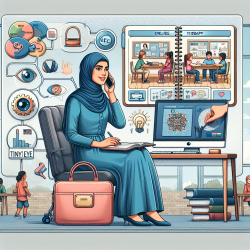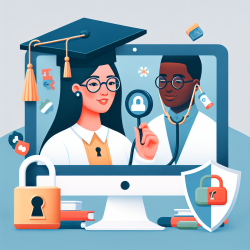Individualized Education Program (IEP) meetings are a cornerstone of special education, providing a structured approach to addressing the unique needs of each child. For Speech Language Pathologists (SLPs), these meetings are an opportunity to advocate for the speech and language development of students. However, the process can often feel overwhelming, leaving many professionals feeling lost and uncertain about how to navigate these critical discussions effectively.
At TinyEYE, we understand the challenges that come with IEP planning and meetings. Our mission is to support SLPs by providing online therapy services that are tailored to the needs of each student. In this blog, we will share strategies to help you transform your IEP meetings into productive and inspiring sessions.
Understanding the IEP Process
IEP meetings are designed to create a personalized educational plan for students with special needs. As an SLP, your role is to provide insights into the child's speech and language abilities and to recommend appropriate interventions. Here are some key steps to help you prepare:
- Review the Student's History: Before the meeting, thoroughly review the student's file, including previous IEPs, assessment reports, and any other relevant documentation. This will help you understand the child's progress and identify areas that need attention.
- Conduct Assessments: Use a variety of assessment tools to evaluate the student's current speech and language skills. This data will be crucial in setting realistic and achievable goals.
- Collaborate with Teachers and Parents: Engage in discussions with the student's teachers and parents to gain a comprehensive understanding of the child's needs. Their insights can provide valuable context and help you develop a more effective plan.
Setting SMART Goals
One of the most important aspects of an IEP is setting goals that are Specific, Measurable, Achievable, Relevant, and Time-bound (SMART). These goals will guide your interventions and help track the student's progress. Consider the following when setting SMART goals:
- Specific: Clearly define what you want the student to achieve. Avoid vague language and be as detailed as possible.
- Measurable: Ensure that the goals can be measured objectively. This will allow you to track progress and make data-driven decisions.
- Achievable: Set goals that are challenging yet attainable. Consider the student's current abilities and potential for growth.
- Relevant: Align the goals with the student's overall educational needs and priorities.
- Time-bound: Establish a timeline for achieving the goals. This creates a sense of urgency and helps keep everyone accountable.
Effective Communication During Meetings
Communication is key to a successful IEP meeting. As an SLP, you must be able to articulate your assessments, recommendations, and goals clearly and confidently. Here are some tips to enhance your communication skills:
- Be Prepared: Come to the meeting with all necessary documents and data. Being well-prepared will help you present your case more effectively.
- Use Clear Language: Avoid jargon and technical terms that may confuse parents or other team members. Use simple, straightforward language to explain your points.
- Listen Actively: Pay attention to the concerns and suggestions of other team members. Active listening shows respect and helps build a collaborative atmosphere.
- Stay Positive: Focus on the student's strengths and potential. A positive attitude can inspire confidence and motivate the team to work towards common goals.
Leveraging Online Therapy Services
In today's digital age, online therapy services like those offered by TinyEYE can be a game-changer for IEP planning and implementation. Here’s how online therapy can benefit your practice:
- Flexibility: Online therapy provides the flexibility to schedule sessions at convenient times, making it easier to accommodate the needs of students and their families.
- Access to Resources: With online platforms, you have access to a wealth of resources, including digital tools and materials that can enhance your therapy sessions.
- Collaboration: Online therapy allows for seamless collaboration with other professionals, ensuring that everyone is on the same page and working towards the same goals.
- Consistency: Online sessions can help maintain consistency in therapy, even when in-person meetings are not possible. This is especially important for students who require regular intervention.
At TinyEYE, we are committed to empowering SLPs and improving the lives of children through innovative online therapy solutions. By leveraging these tools and strategies, you can transform your IEP meetings into productive and inspiring experiences, ensuring that every child receives the support they need to succeed.
Feeling lost during IEP meetings is a common experience, but with the right preparation and mindset, you can navigate these challenges with confidence and make a meaningful impact on your students' lives. Remember, you are not alone in this journey—TinyEYE is here to support you every step of the way.










